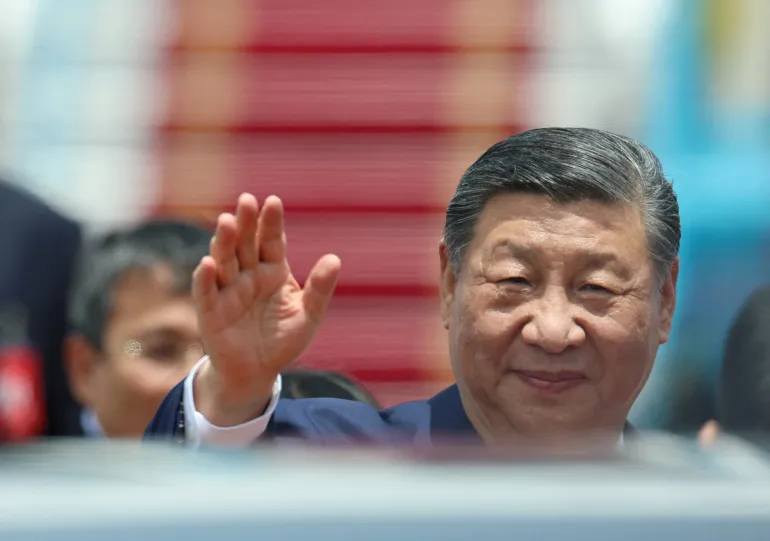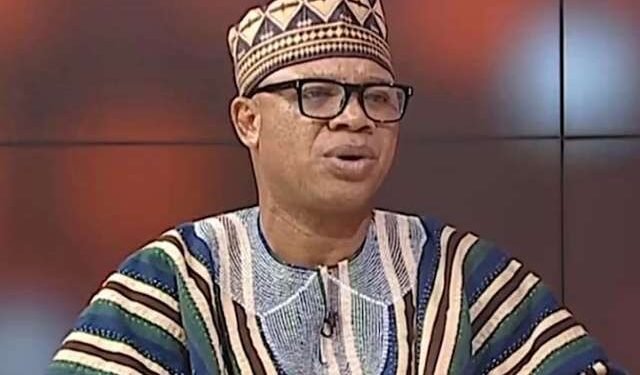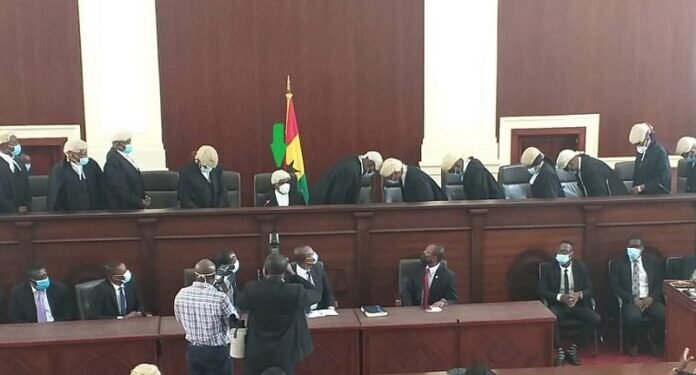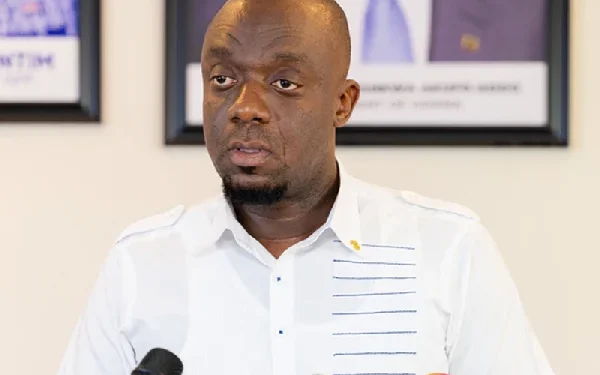Chinese President, Xi Jinping has expressed China’s intention to bolster ties with Australia, as the two countries stress dialogue and seek to stabilise trade in the face of global tensions.
Xi made the remarks as he hosted Australian Prime Minister, Anthony Albanese in the Great Hall of the People in Beijing.

The six-day visit by Albanese aims to boost economic cooperation with Beijing, Australia’s top trading partner.
In his opening remarks, Xi said the China-Australia relationship had risen “from the setback and turned around, bringing tangible benefits to the Chinese and Australian peoples.”
“The most important thing we can learn from this is that a commitment to equal treatment, to seeking common ground while sharing differences, pursuing mutually beneficial cooperation, serves the fundamental interests of our two countries and two peoples.
“No matter how the international landscape may evolve, we should uphold this overall direction unswervingly.”
Xi Jinping
He added that the Chinese side is ready to work with the Australian side to “push the bilateral relationship further and make greater progress so as to bring better benefits to our two peoples.”
Relations between Beijing and Canberra have charted a bumpy course over the past decade, a period marked by repeated disagreements over national security and competing interests across the vast Pacific region.
Ties improved in December when China called off a ban on imported Australian rock lobster, removing the final obstacle to ending a damaging trade war waged between the countries from 2017.
The meeting between the two leaders came as China tries to capitalise on United States President Donald Trump’s sweeping tariffs by presenting itself as a stable and reliable partner.
Australia, which regards the US as its major security ally, has also pursued a policy on China of “cooperate where we can, disagree where we must” under Albanese.
Chinese officials have expressed interest in expanding a decade-old free trade deal and cooperating in artificial intelligence.
Meanwhile, the state-owned China Daily newspaper published an opinion piece about Albanese’s visit and said that it showed countries with different political systems could still cooperate.
However, any cooperation is likely to be constrained by longstanding Australian concerns about China’s military build-up and the jailing of Australian writer Yang Hengjun, who was sentenced to death in China over allegations of espionage.
Beijing has also separately criticised Canberra’s increased screening of foreign investment in critical minerals and Albanese’s pledge to return a Chinese-leased port to Australian ownership.
Albanese Stresses Need For Dialogue With Xi

On his part, Australian Prime Minister, Anthony Albanese said that he welcomed “the opportunity to set out Australia’s views and interests” and stressed that “dialogue” must be at the heart of the ties between the two countries.
He added that Australia values it’s relationship with China and will continue to approach it in a calm and consistent manner, guided by it’s national interest.
“It’s important we have these direct discussions on issues that matter to us and to the stability and prosperity of our region. As you and I have agreed previously, dialogue needs to be at the centre of our relationship.”
Anthony Albanese
He noted that the Australian government welcomes progress on cooperation under the China-Australia Free Trade Agreement.
“Given that one out of four Australian jobs depends on trade and given that China is overwhelmingly by far the largest trading partner that Australia has, it is very much in the interest of Australian jobs, and the Australian economy, to have a positive and constructive relationship with China.
“Dialogue is how we advance our interests, how we manage our differences, and we guard against misunderstanding.”
Anthony Albanese
Later on Tuesday, Albanese is scheduled to meet Chinese Premier, Li Qiang with trade, the energy transition and security tensions being the key topics for discussions between them.
READ ALSO: Ghana’s Normalization of Electoral Violence, Dangerous- Prof. Asare























